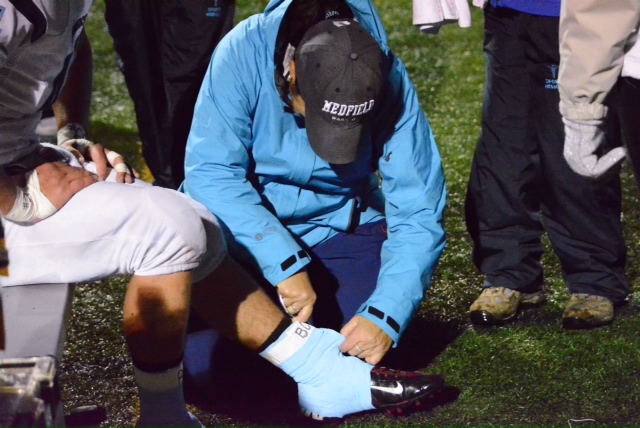Oct 21, 2016Dealing with Mom and Dad

I am sure that every athletic trainer, teacher, and coach has had to work with parents who are difficult. As athletic trainers, there is no surefire way to get them to understand our job. However, as with most things, communication is the key to keeping the parent informed and building a trust with them.
Remember that not all parents are former athletes, so they may not know anything about sports or what to expect. They may not know what an athletic trainer is and the important role we play in maintaining the health of the athletes. Or they may be nervous Nellie’s who need to be reassured.
When faced with any of these predicaments, I would start by informing parents of your educational background, licensure, and having to pass boards to practice. Ask the parent what they need from you and be sure to check in often with them. It is better to be proactive and let the parent know they can contact you with questions and worries. This helps the parents feel connected and like they have some control of their child’s well-being. If you have a good rapport with other parents, you can tell them to contact each other for guidance and reassurance.
Start by informing parents of your educational background, licensure, and having to pass boards to practice. Ask the parent what they need from you and be sure to check in often with them.
At the college level, if the athlete is over 18 years of age, we have to follow HIPPA regulations. This can cause problems if they don’t want their parent to know about any injuries they suffer. I once dealt with the father of a collegiate wrestler who wanted to know everything about his son’s health. The son did not want his father involved but only told the athletic training staff and not his parent. As a result, the father became very abusive when we would not release information to him. This caused a lot of friction.
We informed the athlete that he was under his parents’ insurance and that eventually they would know all about his injury. He relented, and from them on, we had the son present whenever we had contact with the father so they could work out the privacy issues.
Working with international student-athletes and their parents can add another wrinkle to providing care at the college level. On more than one occasion, I took international athletes home with me post-surgery so they had someone to care for them. For example, I had a female athlete who had ankle surgery just prior to Christmas and could not fly home for a few days. The coach left, and I brought the girl home with me. Her parents were able to call and speak with her and knew that a trustworthy adult was there for her. She was able to make it home for Christmas, but I think knowing I was there post-op was very reassuring for her parents.
In conclusion, communicate often with difficult parents and keep detailed records. If anything goes wrong with the recovery, you will have well-documented files for proof of your actions. Also, don’t forget to keep the parents up to date.



